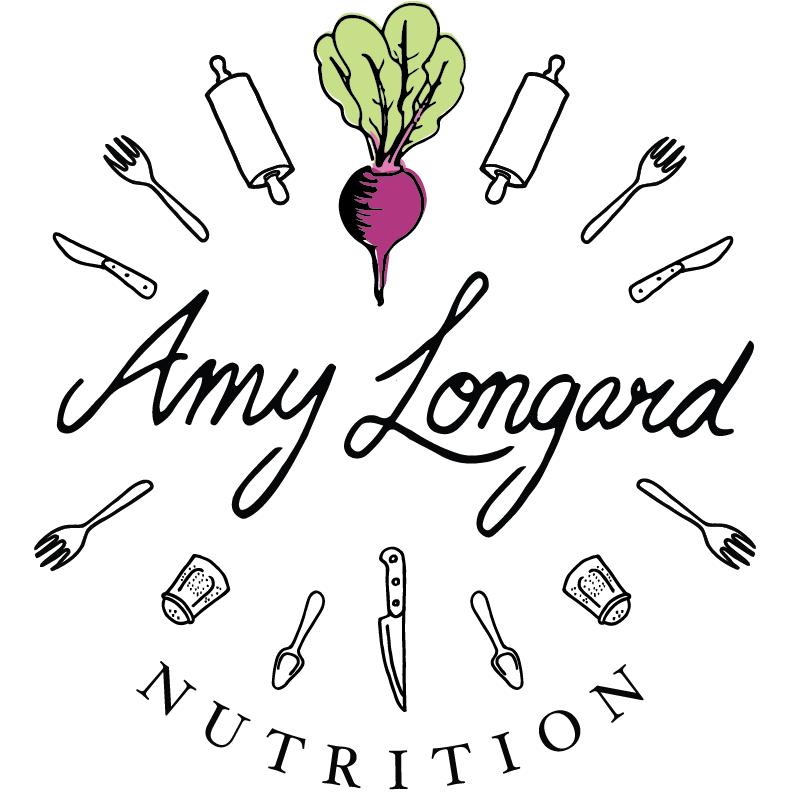Food & Mood: Be Happy, Not Hangry
In the last month or so, I've been having a lot of fun planning, organizing and participating in #HappinessHabits613. Since food and nutrition are a big part of my life, it was important to me to write about how our food choices can affect the way we feel. Happiness, or lack thereof, is generally associated with lifestyle factors such as stress, social relationship, lack of sleep, finances, and so on, but the link between food and mood is often overlooked. If you're looking for some basics on how to improve your food choices, and ultimately your mood, please read on.
Photo via www.pintrest.com
In my experience, one of the most effective ways to keep your mood in check is to make sure that your blood sugar is balanced. If you're not exactly sure what I mean by this, let me give you an example. Have you ever noticed that you start to feel hangry if you wait too long to eat or skip a meal? In this state, you might feel short tempered, irritable, anxious, shaky, snappy, or quick to lash out? These are classic and primordial symptoms of body's response to low blood sugar. If you've experienced this, you'll know that it's not enjoyable for you or for those around you.
So, let's look at ways that you can keep the hangre at bay!
First and foremost, you'll want to focus on eating real foods. As we know, all food is not created equal. In fact, some foods are created almost entirely in a factory. Whereas others are plucked from the earth, a tree, or bush, and transferred (with very little processing) from the farm to the farmers' market or grocery store, then to your table. You'll want to focus on the latter. Try to build your diet around foods that are fresh and whole (extra points if they are organic, local and seasonal too). You'll also want to amp up your meals with fresh produce, whole grains, legumes, nuts, seeds, and good quality oils (like extra virgin olive oil and unrefined coconut oil). Why? Because these foods will nourish and satiate you by providing a balanced mix of vital nutrients, healthy proteins, carbohydrates (fibre!) and fats. Because of this, you'll feel full longer and you won't be plagued by the dreaded blood sugar highs and lows. This means you'll have balanced energy levels, be more clear headed, productive, and you'll feel happier!
Our brains require glucose to function properly. When blood sugar (blood glucose) drops too low you'll notice changes in cognition and mood. You may experience impaired memory, irritability, slowed thinking, or even feelings of depression. To prevent this from happening, I want you to eat snacks. I know I just told you that eating real foods will keep you full longer, and they will, but snacks provide that little top up of glucose your brain needs to continue functioning at full capacity until your next meal. And on this note, your snacks should also fall into the "real food" category. If you start to feel a lull in energy, have a handful of trail mix, an apple, rice cakes with almond or peanut butter, granola and yogurt, or my all time favourite, hummus with veggies and Mary's crackers.
Limit sugar, caffeine, alcohol, and processed foods. In moderation, most of these things are okay, but be aware that they can trigger blood sugar irregularities. For example, if you consume a lot sugary foods your blood sugar levels will undoubtedly spike. When this happens, your pancreas will pump out insulin to help regulate and store any excess glucose found in your blood. In this situation, the body often produces more insulin than needed and, in one fell swoop, you've gone from very high blood sugar to very low blood sugar. What happens next? Lethargy, fatigue and cravings for sugary, sweet foods. Then you end up eating that brownie and drinking that double mocha frappuccino you were so desperately craving — and the cycle continues. Spare yourself from the emotional, psychological, and physiological roller coaster by focussing your diet on healthy, whole proteins, carbohydrates, and fats.
You should also strive to diversify your diet. When shopping at the grocery store or farmers' market, fill your basket or tote bag with a colourful collection of foods. The greater variety of whole foods you consume the more mood-boosting nutrients your diet will contain. If you tend to eat spinach or kale all the time, try adding collard greens or swiss chard into your diet. If chickpeas are high in the rotation, maybe you could switch things up by trying a recipe that calls for black-eye peas or navy beans? After reading this post, I challenge you to try at least one new thing this week, the next week, and the week after that. Overtime, you'll have introduced an array of new foods to your repertoire and adding variety will become a habit. Plus, you'll be healthier and happier as a result.
"I have chosen to be happy because it is good for my health." - Voltaire. Be happy, be healthy. Thanks to Heather G. for the photo.


